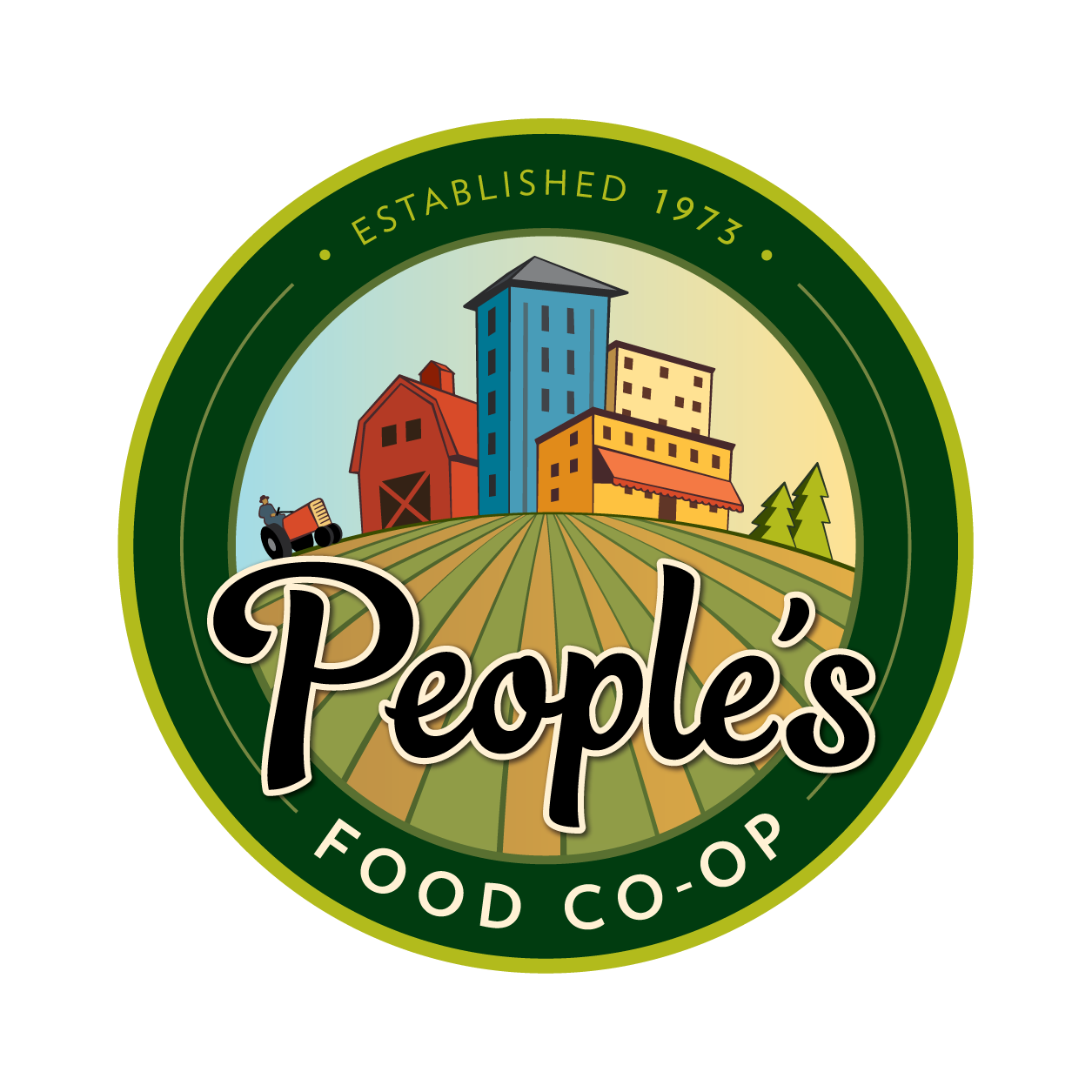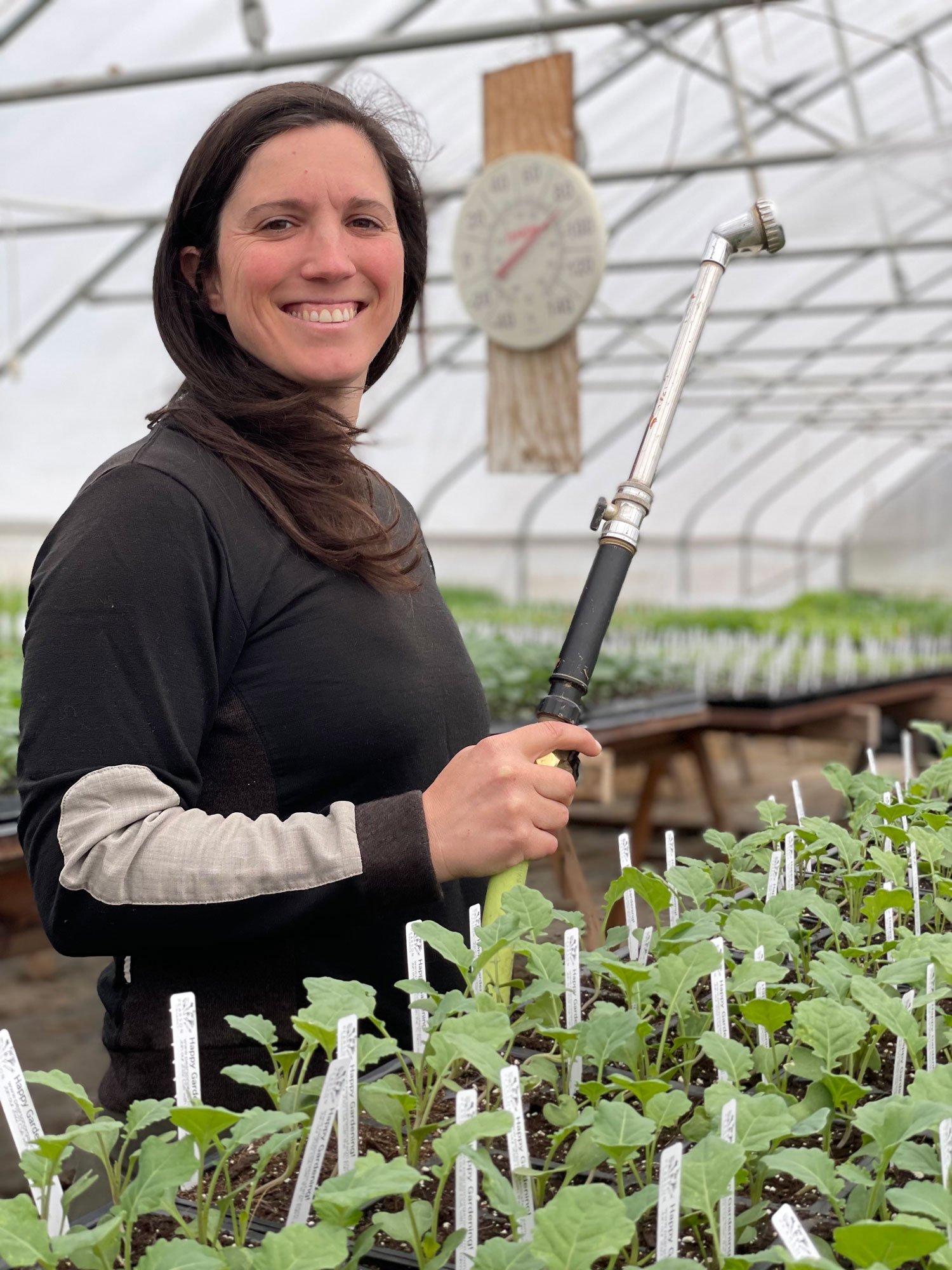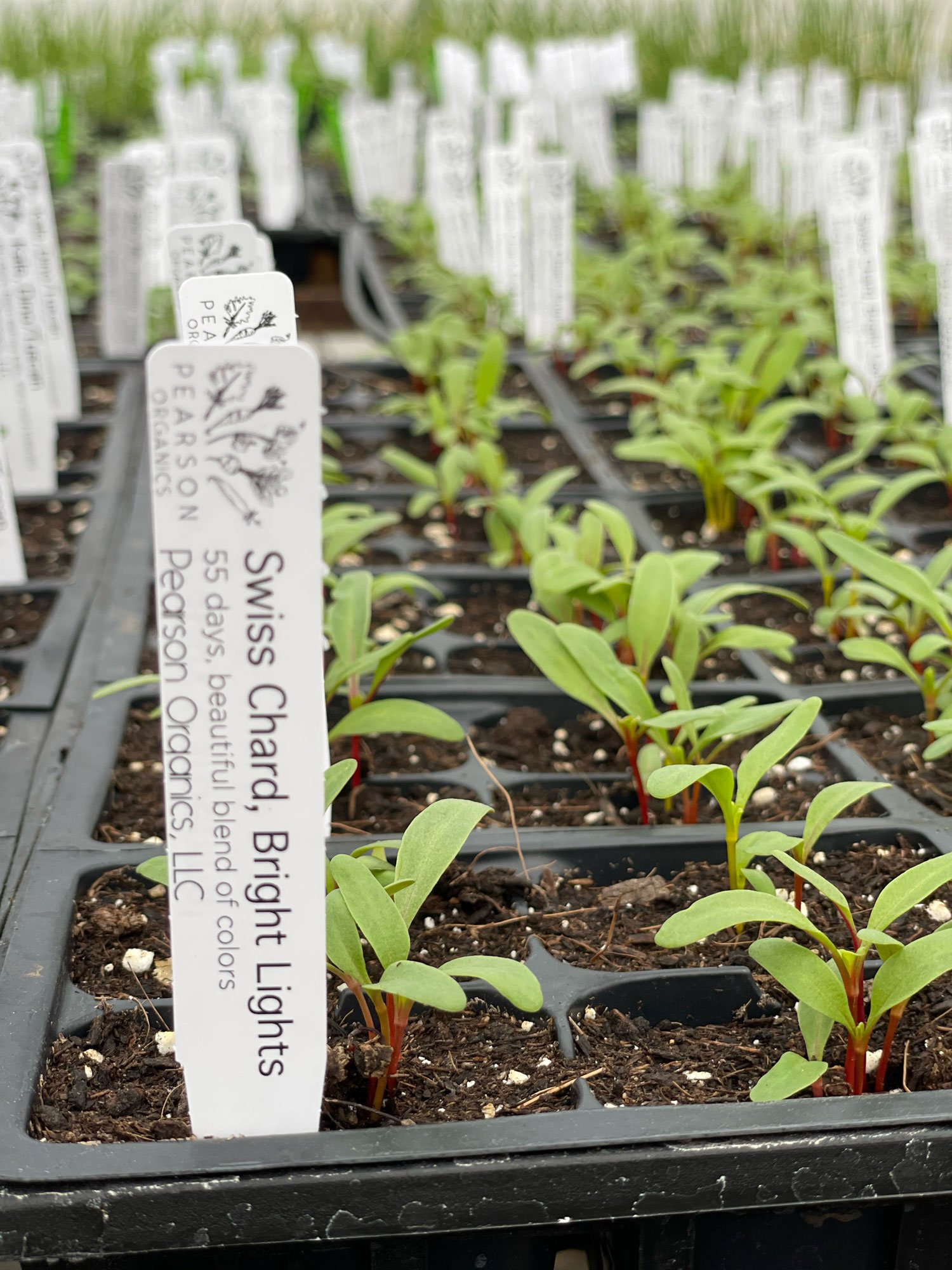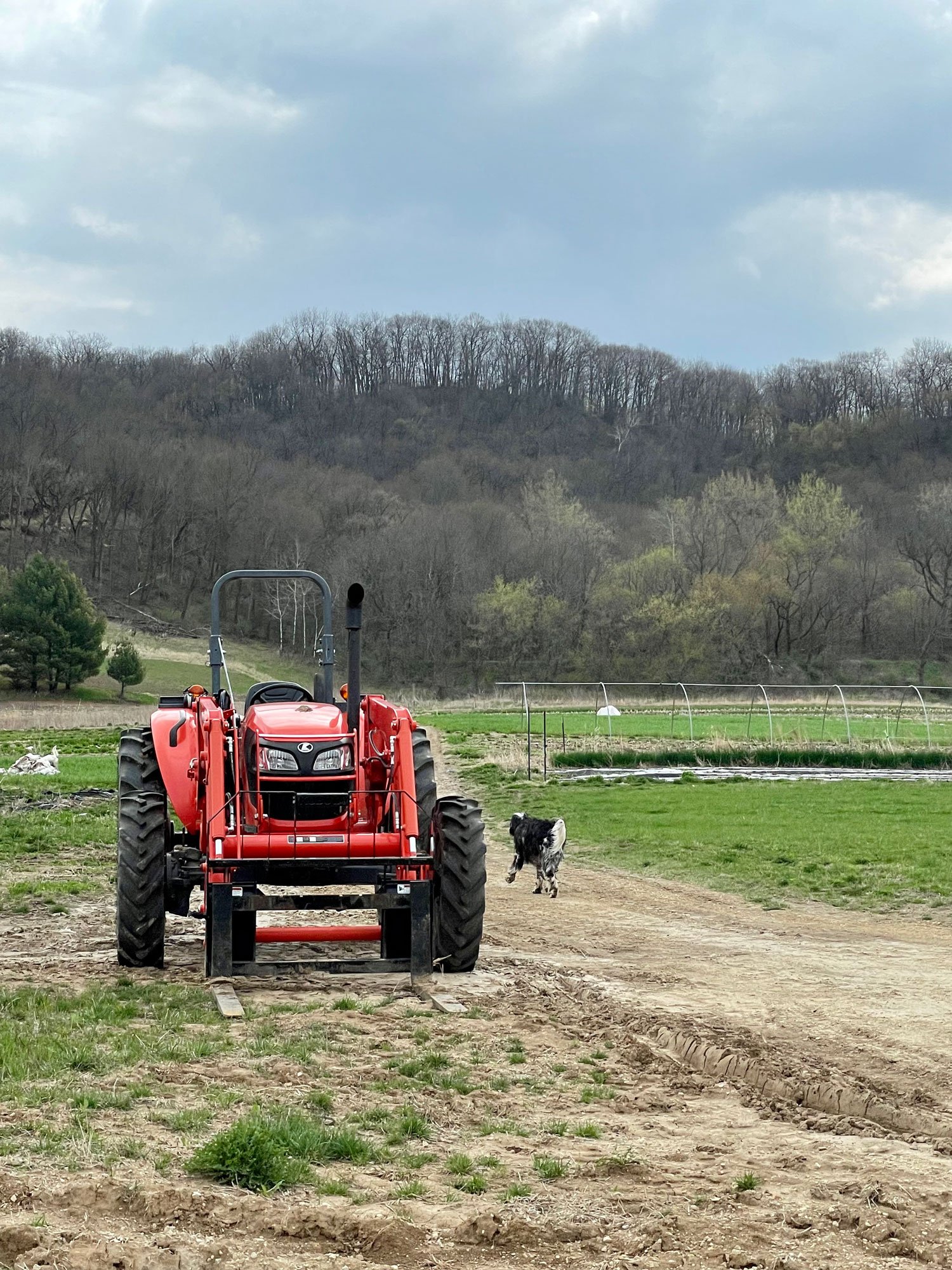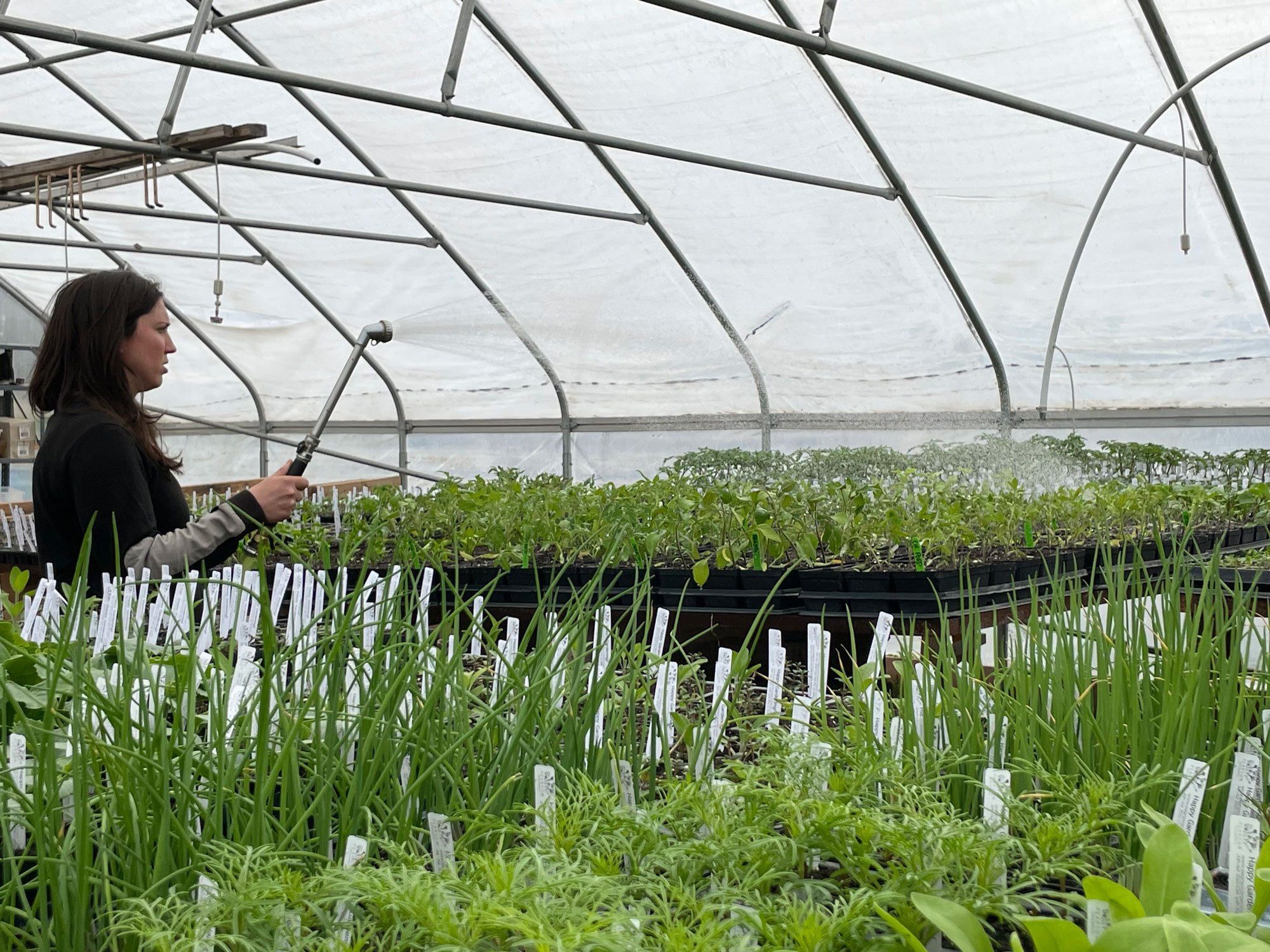Pearson Organics
Location: Lake City, MN
35 miles from PFC—Rochester
Pearson Organics was founded in 2017 by Kristin Pearson, who is originally from Rochester, MN. Starting from rented land near Oronoco, Pearson Organics moved to its permanent home in the bluffs of Lake City in March of 2020. They proudly supply PFC with beautiful organic seedlings each spring.
On a recent visit to the Pearson Organics farm, we caught a glimpse of the farm operations and life in the scenic and secluded valley where the farm is located. While there, we learned about the process of planting and caring for seedlings, the crops Kristin is focusing on now, as well as other ins and outs of making a farm operation successful.
What used to be a rarity a few decades ago, women-owned farms have been steadily increasing, especially among younger farmers. The US Department of Agriculture has shown roughly 30% of farms in Minnesota are owned and operated by women, and that number continues to rise. Kristin tells us more about her organic farm and her path from growing up in Rochester to loving the farm life as she gave us a tour of her farm.
How did you get started in farming? When did you know this was the career for you?
It all started with an interest in plants and botany (and a little bit of gardening) going back to kindergarten. I stuck with these interests through high school and college where I majored in biology with a focus on botany. At the time I did not anticipate a career in agriculture, however. I thought I would end up teaching biology. I was interested in a self-sufficient lifestyle and this combined with teaching science brought me to interning at a school in California with a large garden. I spent a lot of time in the garden and was immediately drawn to the work. I followed this passion around the country working on various farms until I felt it was time to start my own business! Then I returned to Minnesota to do just that.
What do you love most about farming?
I love connecting with the land and seeing a physical manifestation of my work. It’s great to see a soil test improve year after year, and it’s also super rewarding to spend hours and hours caring for a crop and pull out a huge harvest when it’s ready. Sometimes you put in a ton of work and something like the weather can ruin it all, but that’s part of what keeps it interesting.
What are some of the biggest challenges you've faced?
Labor is a constant challenge. Farming is hard work, and not everyone is cut out for it, even though the life seems so dreamy from afar.
Pricing is also a serious challenge as a majority of the general population places a low value on food and how it relates to their health. Many people expect local farmers to be able to match the prices of giant industrial farms in California and that puts farmers in a difficult situation where they often have to choose to pay themselves less than a living wage in order to sell their product.
How were you affected by the Covid pandemic?
The biggest impact we saw from Covid and the ripple effects around the pandemic was staffing. The labor pool shrunk dramatically and became much more competitive. It was challenging to maintain a workforce in 2021, which ultimately led us to make the decision to scale back dramatically in 2022.
How long is the process to grow the seedlings for People’s Food Co-op? When do you start preparing/planting?
I begin the planning process for the seedlings in January, deciding what varieties and mixes we want to offer and nailing down our pricing for the year. We send out order forms to our wholesale customers and launch our online store. Determining fair pricing this year was especially interesting with inflation being as bad as it is. In February we order seeds and begin planting the first trays in late February/early March depending on the weather. Crops like peppers, tomatoes, and herbs are seeded earliest to give them adequate time to grow.
What is your best advice to other women who are interested in agriculture?
To anyone interested in a career in agriculture:
Spend time learning and seeing if it is right for you. Farming, though extremely rewarding, requires some sacrifices that lots of your peers living in a city won’t have to make.
Once you’re ready to start your own farm, find a community of other farms to settle near. This makes things easier.
Don’t be afraid to take some risks when starting a business. It will take time before you can pay yourself.
Take some kind of business or financial course if you haven’t. Farming is fun, but it has to be financially sustainable!
